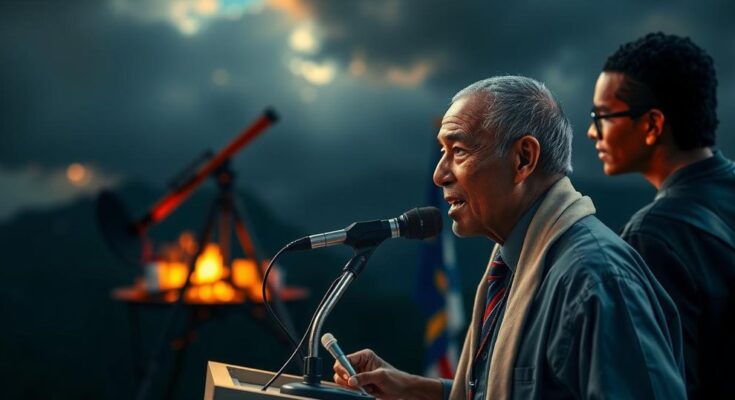Mauritius is holding its election amid wiretapping allegations engulfing government officials. Approximately one million voters will cast their ballots in a tense climate characterized by heightened scrutiny over transparency and governance issues. Prime Minister Pravind Kumar Jugnauth aims for re-election, while major opposition leaders are leveraging the scandal to challenge the ruling party. Key issues contributing to the electoral discourse include rising costs of living, drug-related concerns, and corruption. Voter turnout historically hovers near 80%—a testament to the nation’s strong democratic culture.
Mauritius is currently navigating a politically charged election climate, fueled by serious allegations of government-sanctioned wiretapping. Approximately one million eligible voters are set to participate in this national event, marking the nation’s 12th election since gaining independence in 1968. Historically known for its resilient parliamentary democracy, this election season is characterized by heightened tensions stemming from leaked audio recordings involving high-ranking officials. Significant controversy has also emerged due to an unusual government-imposed social media ban intended to “preserve national security,” which many perceive as a strategy to stifle dissent. Despite the controversy, elections in Mauritius are generally recognized for their credibility, with voter turnout typically around 80 percent. Citizens are particularly concerned about rising living costs, the prevalence of drug abuse, and issues surrounding governmental transparency and accountability. The election dynamics are further complicated by three dominant political parties—MSM, Labour Party, and MMM—each vying for influence amidst a backdrop of ongoing national disputes, notably the recent resolution with the United Kingdom regarding the Chagos Islands. Prime Minister Pravind Kumar Jugnauth leads the ruling Militant Socialist Movement (MSM), seeking re-election amidst accusations of corruption linked to the wiretapping scandal. His major opposition, Navin Ramgoolam of the Labour Party, aims to capitalize on the current public outrage and has promised reforms to address civil rights, should his coalition prevail. The lesser-known candidate, Nando Bodha of Linion Reform, advocates for political change and appeals to the younger electorate but may inadvertently fragment the opposition vote. Crucial matters such as economic stability, drug-related crime, and corruption dictate the electoral landscape. As the nation approaches the voting date, the implications of the wiretapping scandal and the broader issues of governance and societal stability become ever more pronounced, with observers keenly watching the unfolding events.
The political landscape in Mauritius has long been marked by stability and democratic processes since gaining independence from Britain in 1968. As the country approaches its 12th national election, a scandal related to alleged governmental wiretapping has emerged, significantly impacting the campaign atmosphere. This election garners attention not only for its potential outcomes but also for crucial issues such as living costs, drug addiction, and governmental integrity that influence both public sentiment and party dynamics.
As Mauritius prepares for its national election, the intersection of a wiretapping scandal and significant societal issues sets the stage for a highly contested political battle. Voter engagement, amid concerns over corruption and governmental accountability, could redefine the future trajectory of the nation. The election results will likely reflect the electorate’s sentiments towards pressing challenges, shaping Mauritius’s democratic landscape for years to come.
Original Source: www.aljazeera.com




